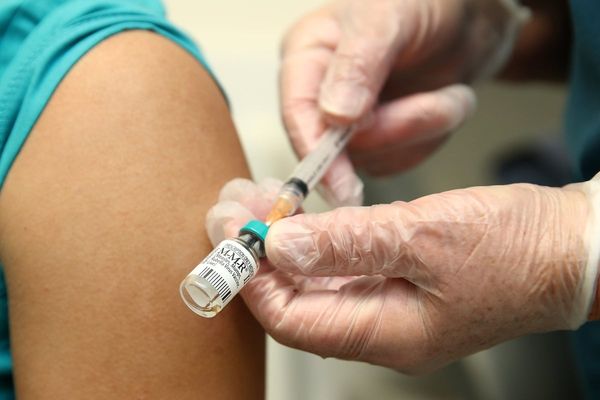President Donald Trump threatened Tuesday to levy up to 200% tariffs on drugs imported into the U.S. "very soon," according to multiple reports.
In a cabinet meeting, Trump said the tariffs wouldn't go into effect immediately. He will "give people about a year, year and a half," CNBC reported.
The tariffs would be a major blow for biotech and pharmaceutical companies. Company execs have pushed back on tariff threats, saying the levies would deter investment in health tech and undercut innovation, interrupt the supply chain and put patients at risk.
"We'll be announcing something very soon on pharmaceuticals," Trump said, according to Financial Times. "We're going to give people a year, year and a half to come in, and after that they're gonna be tariffed if they have to bring pharmaceuticals into the country at a very high rate, like 200%."
But shares of biotech-focused exchange traded funds closed in the green. The SPDR S&P Biotech ETF rose 1.4%, iShares Biotechnology ETF advanced 0.9% and ProShares Ultra Nasdaq Biotechnology jumped 1.8%.
Leerink Partners analyst David Risinger said in a report the news is a positive the biopharma sector "because tariffs will not be implemented immediately" and "it is unclear if the administration will follow through in the future."
Drug Tariffs In Focus
This is far from the first tariff threat Trump has lobbed at pharmaceutical companies.
In April, Trump and his administration, in a matter of days, announced "major" tariffs would soon be coming for pharmaceuticals, then delayed country-specific reciprocal tariffs for 90 days for most trading partners, only to later clarify that the delay didn't pertain to sectoral tariffs.
But Trump says there's no guarantee he will levy drug tariffs at that rate, according to CNBC.
Trump has argued tariffs on pharmaceuticals would force companies to move their manufacturing operations to the U.S. Companies like Eli Lilly, Johnson & Johnson and AbbVie have already announced big investments to expand their stateside footprints.
Meanwhile, drug manufacturers are already bracing for drug-pricing reform under the Most Favored Nation executive order, which they say will put a damper on research and development efforts. They are also facing a slew of policy changes under Health Secretary Robert F. Kennedy Jr.
Follow Allison Gatlin on X/Twitter at @AGatlin_IBD.







